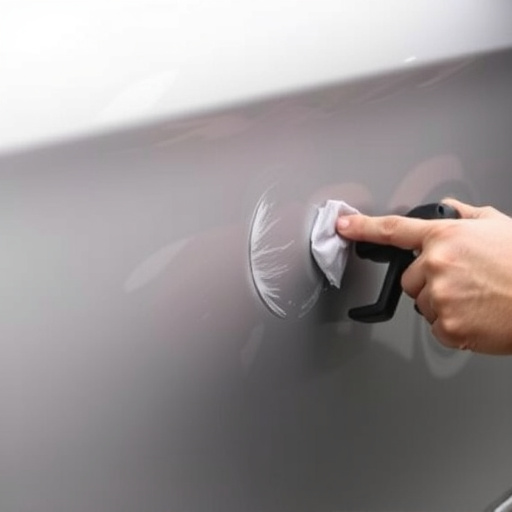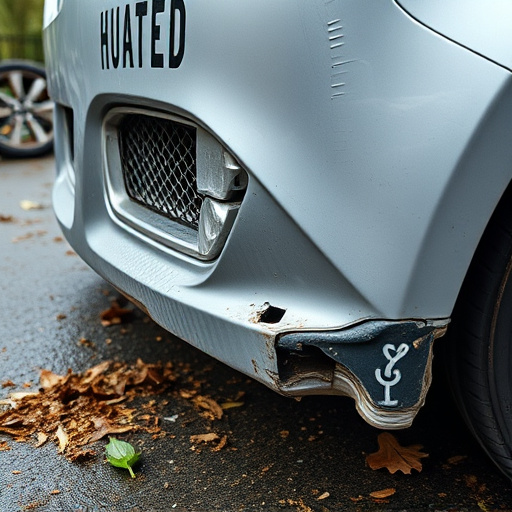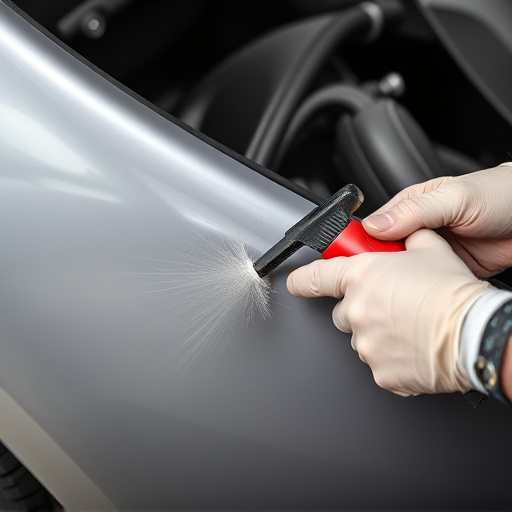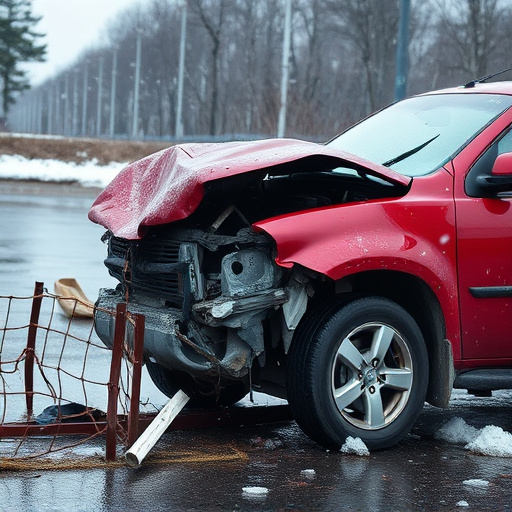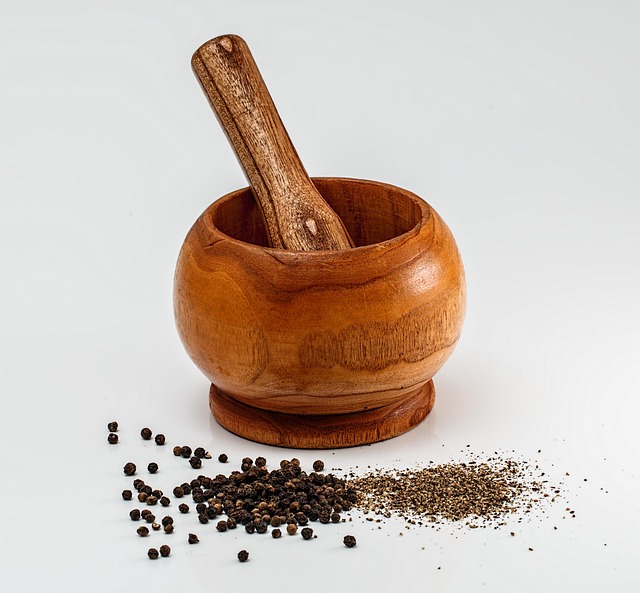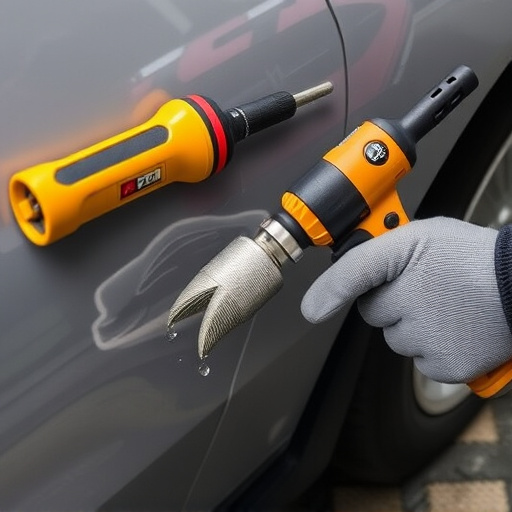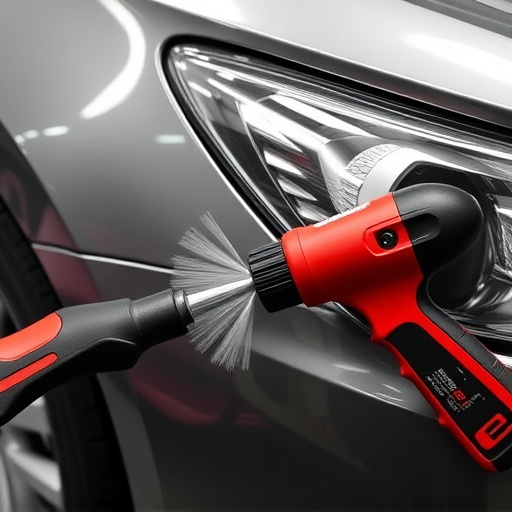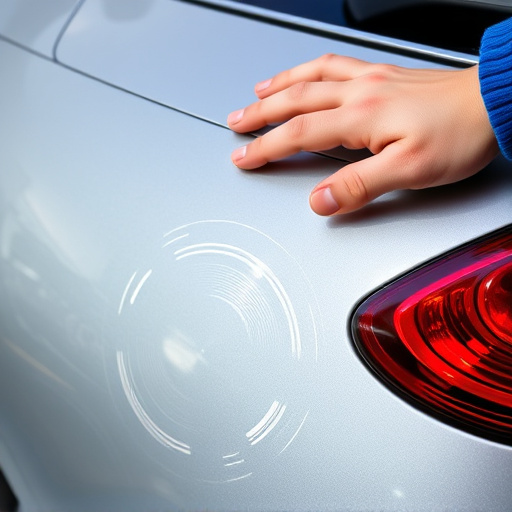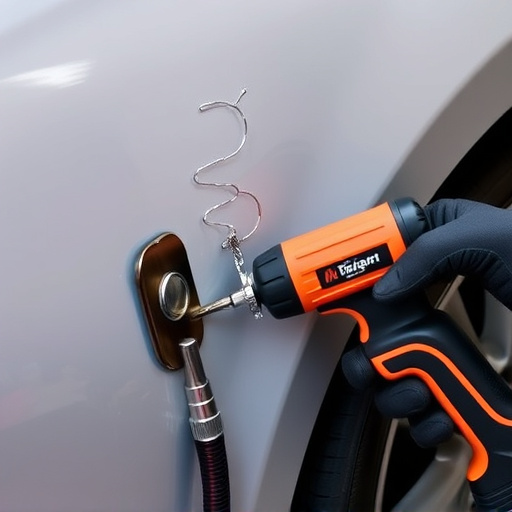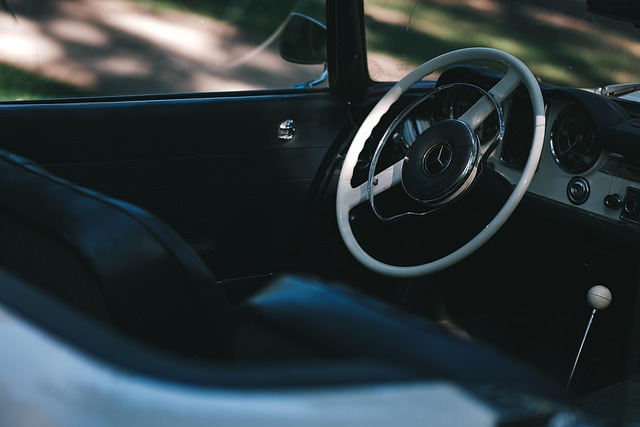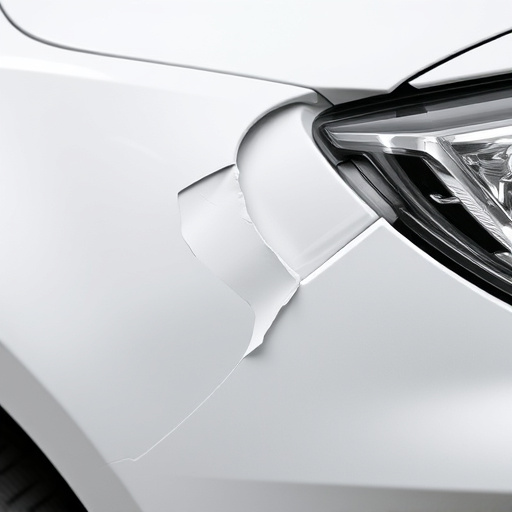The supplement process has revolutionized sustainable practices in collision repair, minimizing toxic chemical use, improving technician safety, and enhancing efficient waste management. By integrating recycled materials and innovative repurposing techniques, auto body shops can reduce environmental impact, lower costs, and meet consumer demand for green car scratch repair solutions, especially for luxury brands like Mercedes-Benz. Digitalization and advanced technologies, including 3D imaging, CAD software, and AI, will further elevate the supplement process, offering enhanced accuracy, consistency, and reduced human error in car restoration processes.
The supplement process plays a pivotal role in transforming sustainable collision repair from an idea into reality. This article delves into how supplements are reshaping auto body repair practices, focusing on material efficiency and waste reduction. We explore the current impact of these processes and gaze into the future, where digitalization promises to further revolutionize the industry. By understanding the evolving role of supplements, repair shops can stay ahead in an increasingly eco-conscious market.
- The Impact of Supplements on Sustainable Collision Repair Practices
- How Supplement Process Enhances Material Efficiency and Waste Reduction
- Future Trends: Digitalization and the Evolving Role of Supplements in Auto Body Repair
The Impact of Supplements on Sustainable Collision Repair Practices
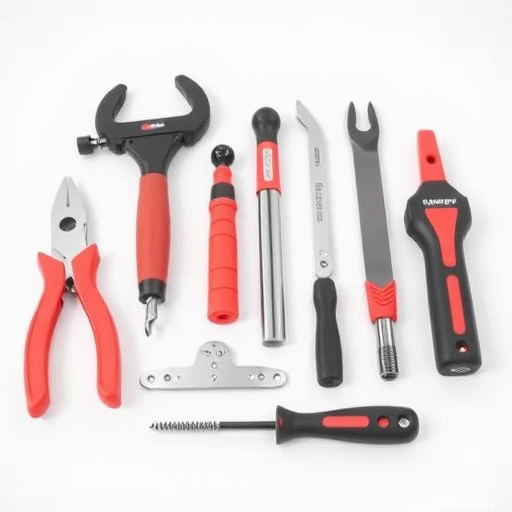
The integration of supplements into the collision repair process has significantly contributed to the adoption of sustainable practices within the auto body shop industry. These specialized products play a pivotal role in enhancing environmental stewardship during car restoration and paint repair procedures. By offering eco-friendly alternatives, supplements minimize the use of toxic chemicals and hazardous materials commonly associated with traditional repair methods. This shift towards sustainable practices not only benefits the environment but also improves working conditions for technicians, making auto body shops safer spaces to work in.
Moreover, incorporating supplement processes allows for more efficient waste management. Many supplements are designed to reduce material waste, ensuring that car paint repair and restoration activities have a smaller ecological footprint. This is particularly beneficial for small, independent auto body shops that may have limited resources but still strive to implement sustainable practices. Through the strategic use of these products, collision repair businesses can contribute to a greener future, ensuring that car restoration efforts are not only effective but also environmentally conscious.
How Supplement Process Enhances Material Efficiency and Waste Reduction
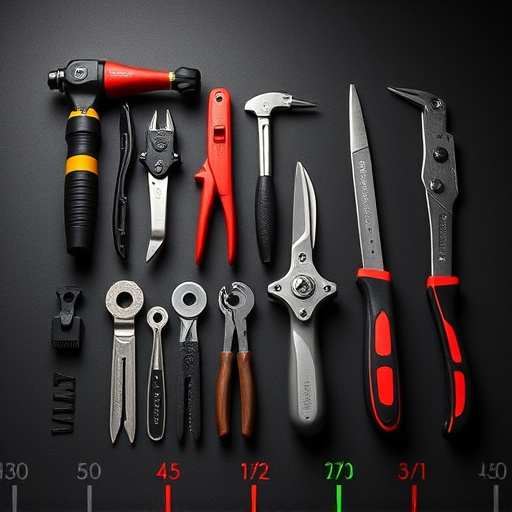
The supplement process plays a pivotal role in enhancing material efficiency and waste reduction within collision repair services, such as those provided for Mercedes-Benz vehicles or car scratch repairs. This method involves strategically integrating recycled and repurposed materials into the repair and refurbishment of damaged panels and components. By employing these sustainable practices, repair shops can significantly minimize their environmental footprint while also reducing costs associated with traditional material procurement.
This process not only extends to the use of eco-friendly composites and paints but also encompasses innovative techniques for repurposing discarded automotive parts from other vehicles or even from the same collision incident. This holistic approach ensures that resources are utilized more efficiently, leading to less waste generated during the repair process. As a result, collision repair shops can offer more competitive pricing while meeting growing consumer demands for environmentally conscious car scratch repair solutions and sustainable Mercedes-Benz repair practices.
Future Trends: Digitalization and the Evolving Role of Supplements in Auto Body Repair
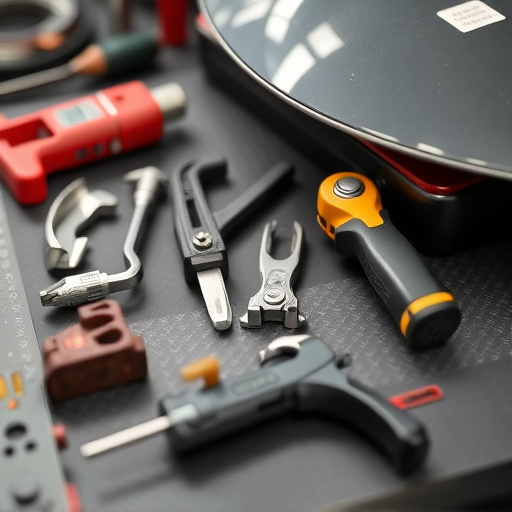
The future of the auto body repair industry is poised for a significant transformation with the rise of digitalization and advanced technologies. As we move forward, the role of supplements in collision repair will continue to evolve, offering both opportunities and challenges. Digital tools and platforms are already revolutionizing how car body shops operate, from design and estimation to actual repair processes. This trend is expected to intensify, with an increasing emphasis on precision and efficiency.
Supplementing traditional car paint repair methods with digital solutions can enhance accuracy and speed. For instance, 3D imaging and computer-aided design (CAD) software enable technicians to precisely measure and visualize damage, facilitating more effective car restoration processes. Moreover, the integration of artificial intelligence (AI) can automate certain tasks, ensuring consistency and reducing human error. As these technologies mature, the supplement process will play an even more critical role in achieving sustainable and high-quality collision repair outcomes.
The supplement process plays a pivotal role in transforming sustainable collision repair from an ideal into a reality. By enhancing material efficiency and waste reduction, it not only supports environmental sustainability but also drives cost-effectiveness. As the automotive industry evolves, digitalization will further revolutionize the supplement process, promising even greater resource optimization and streamlined repair procedures. Embracing these trends ensures a future where auto body repairs are both eco-friendly and economically viable.
